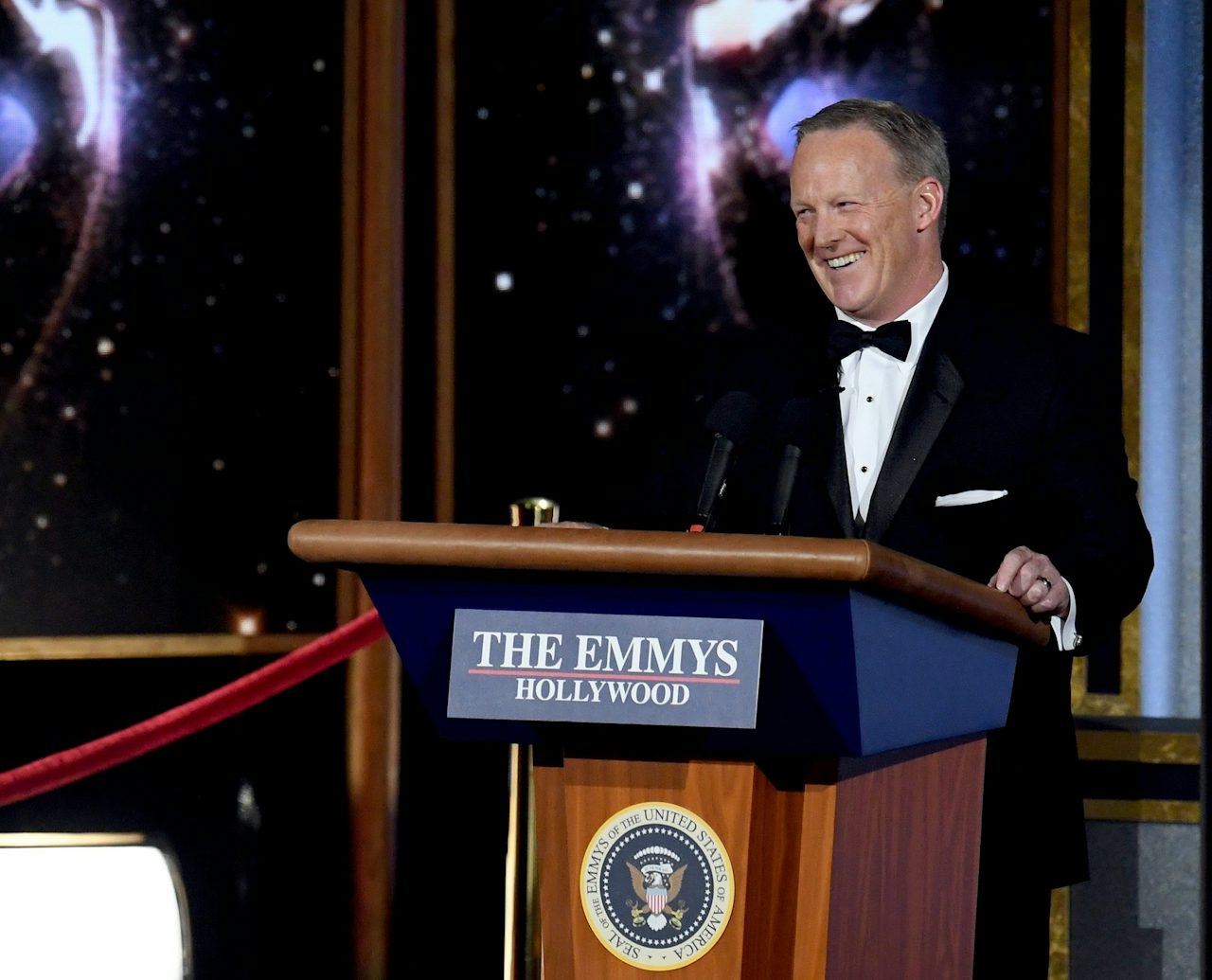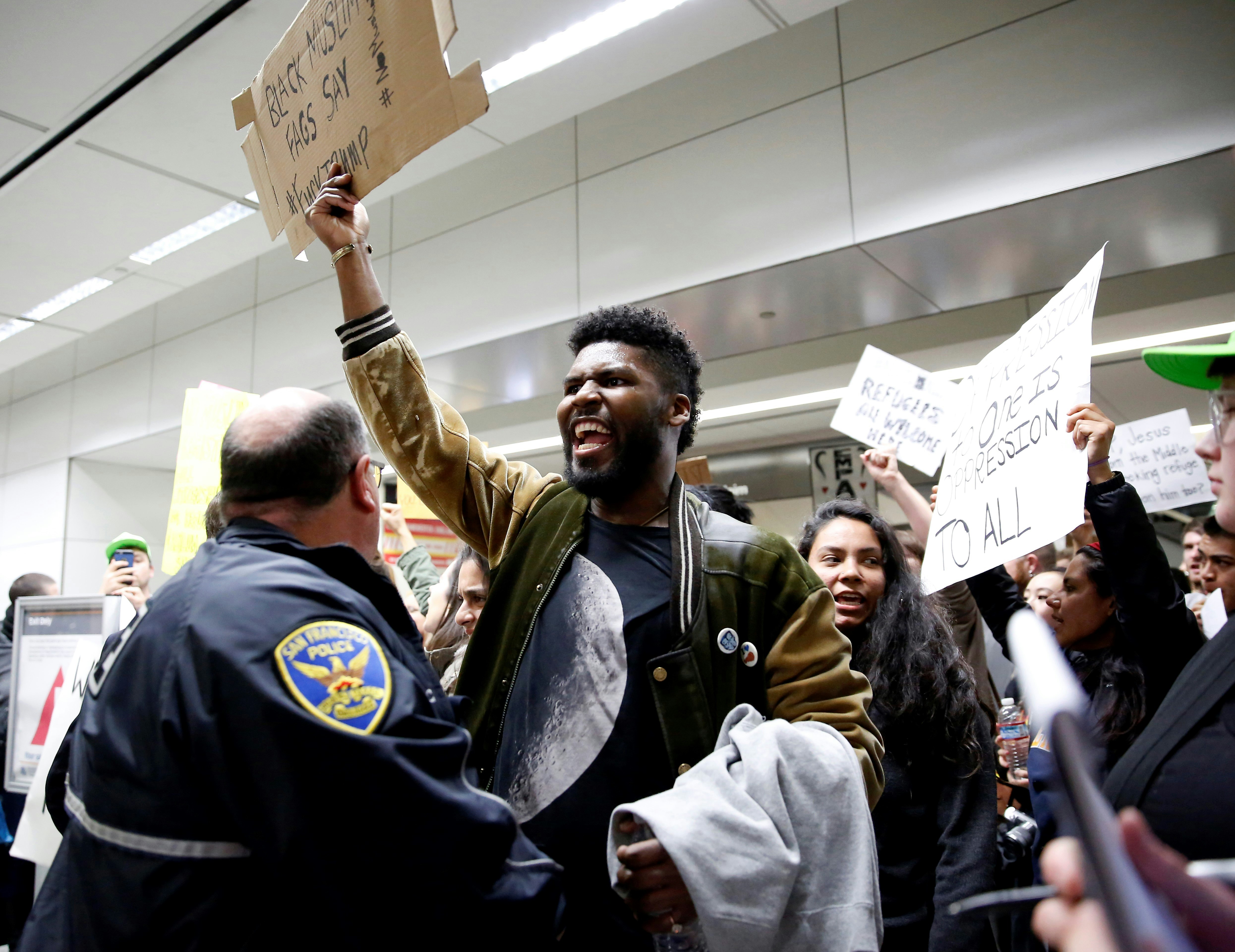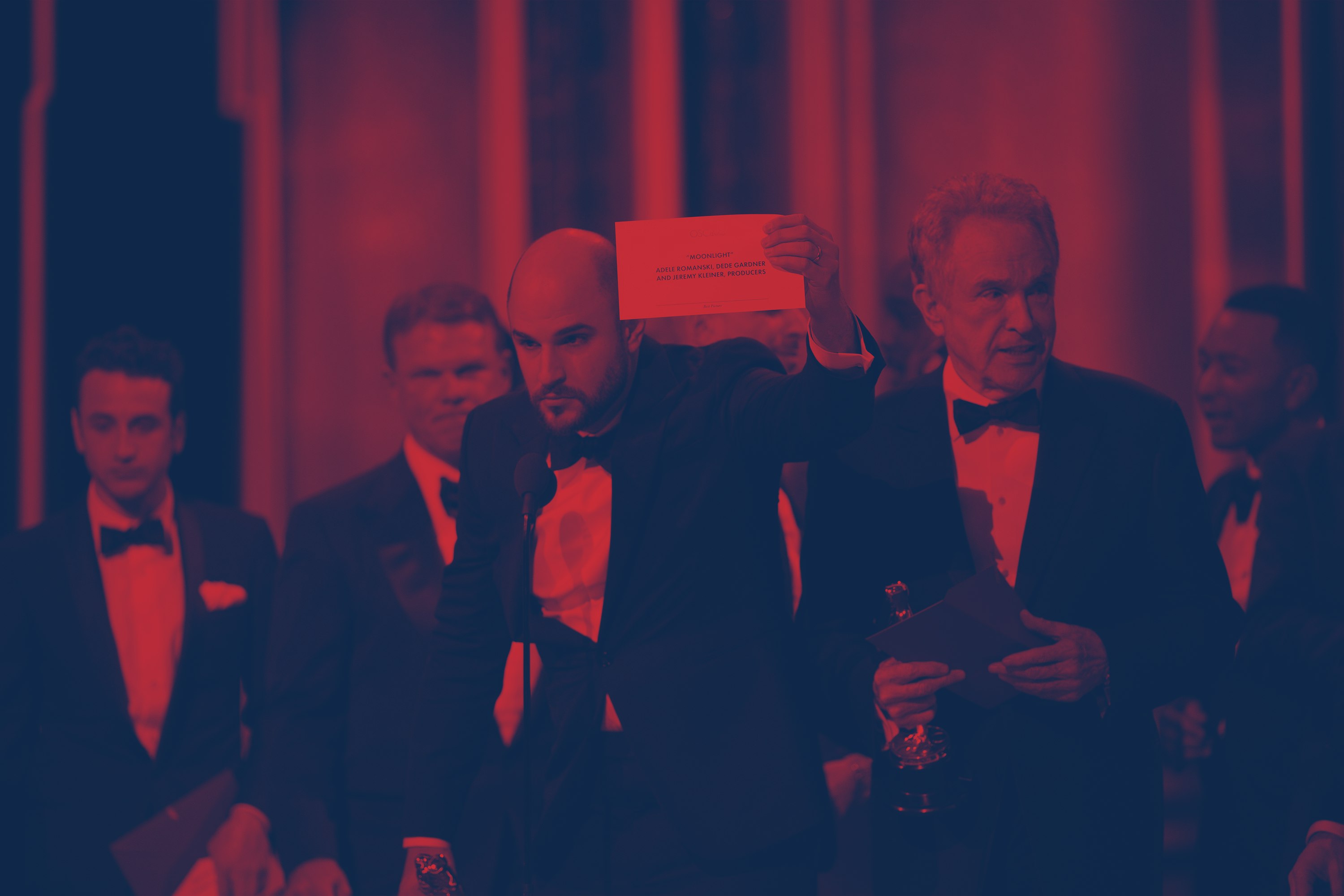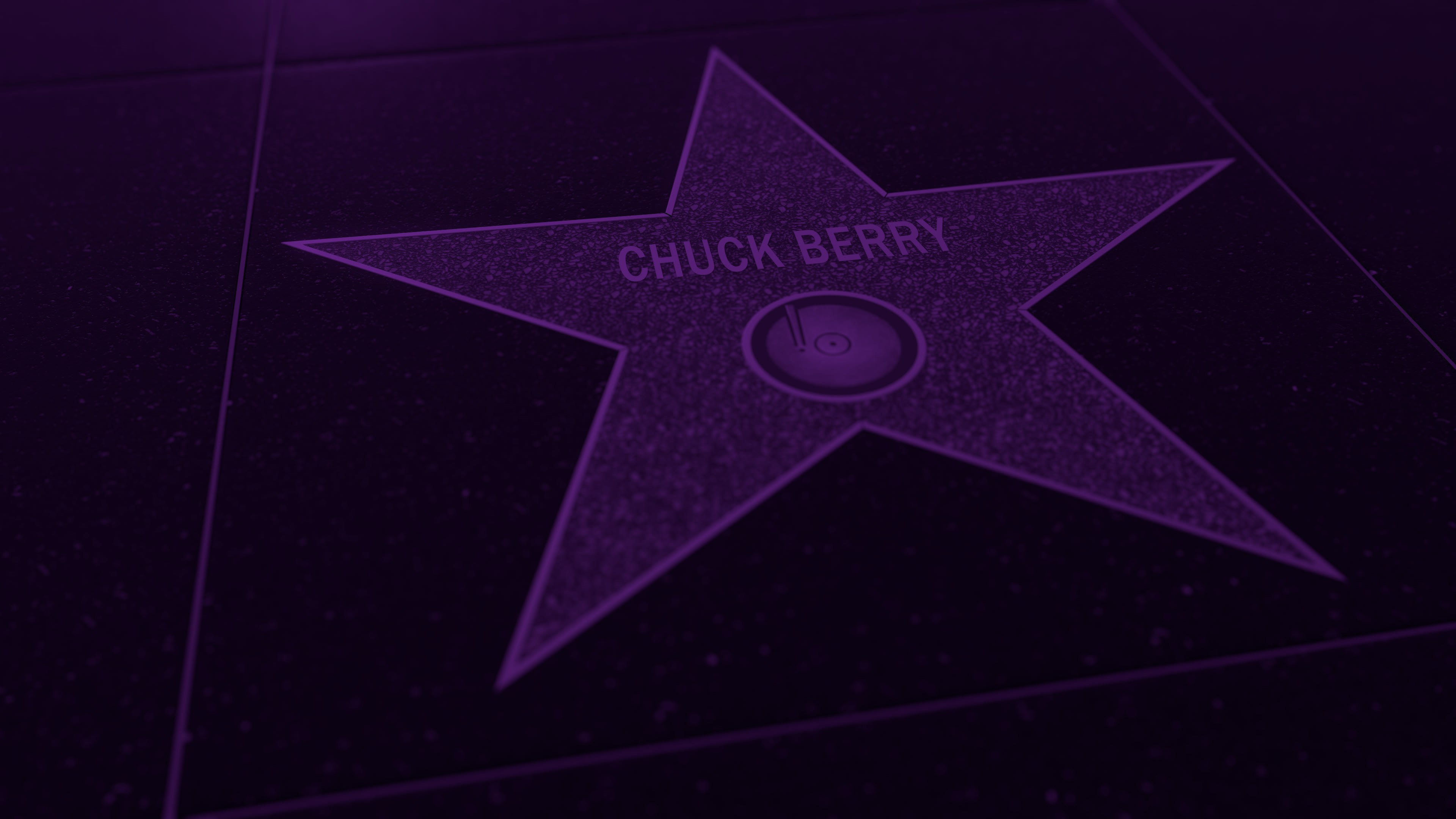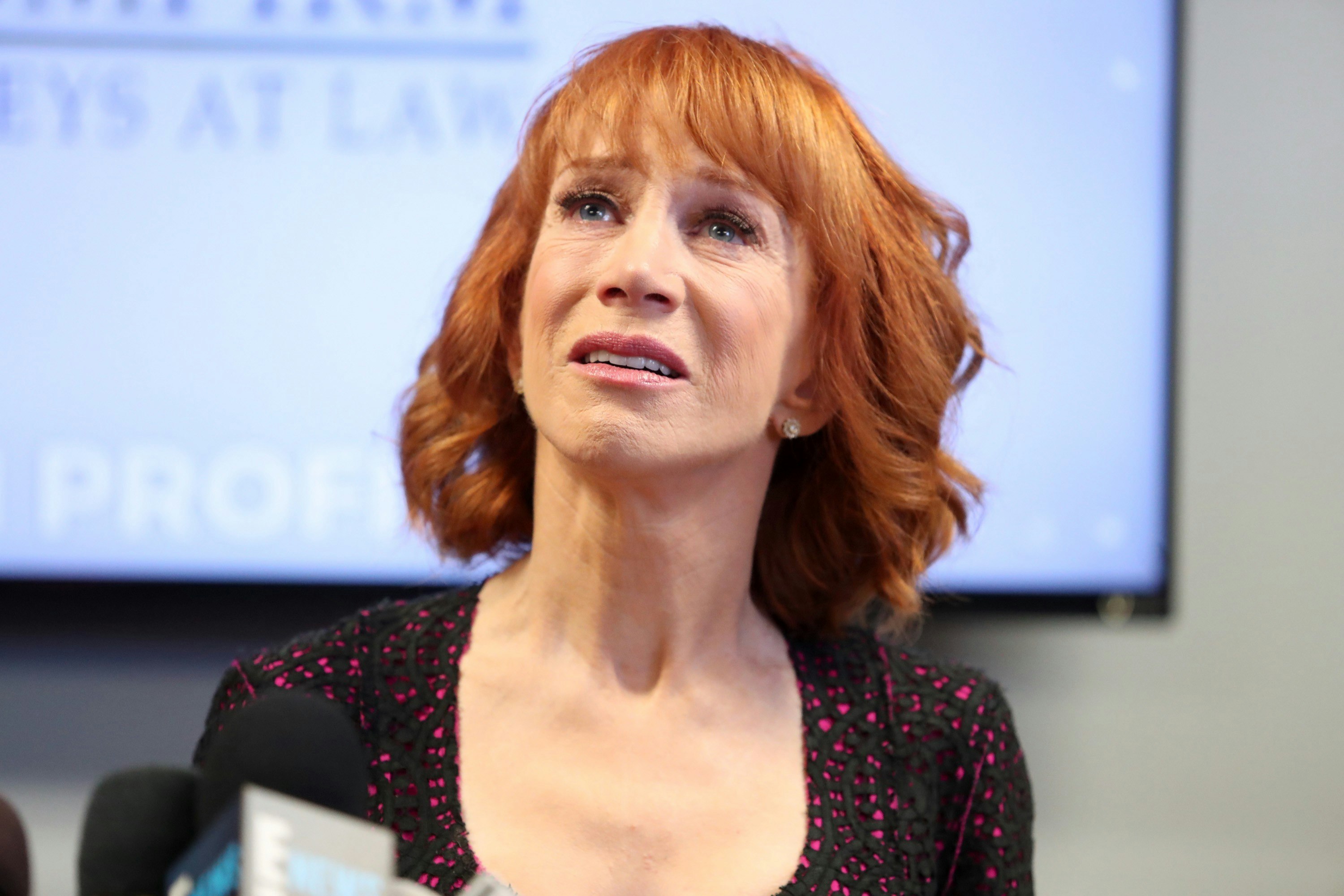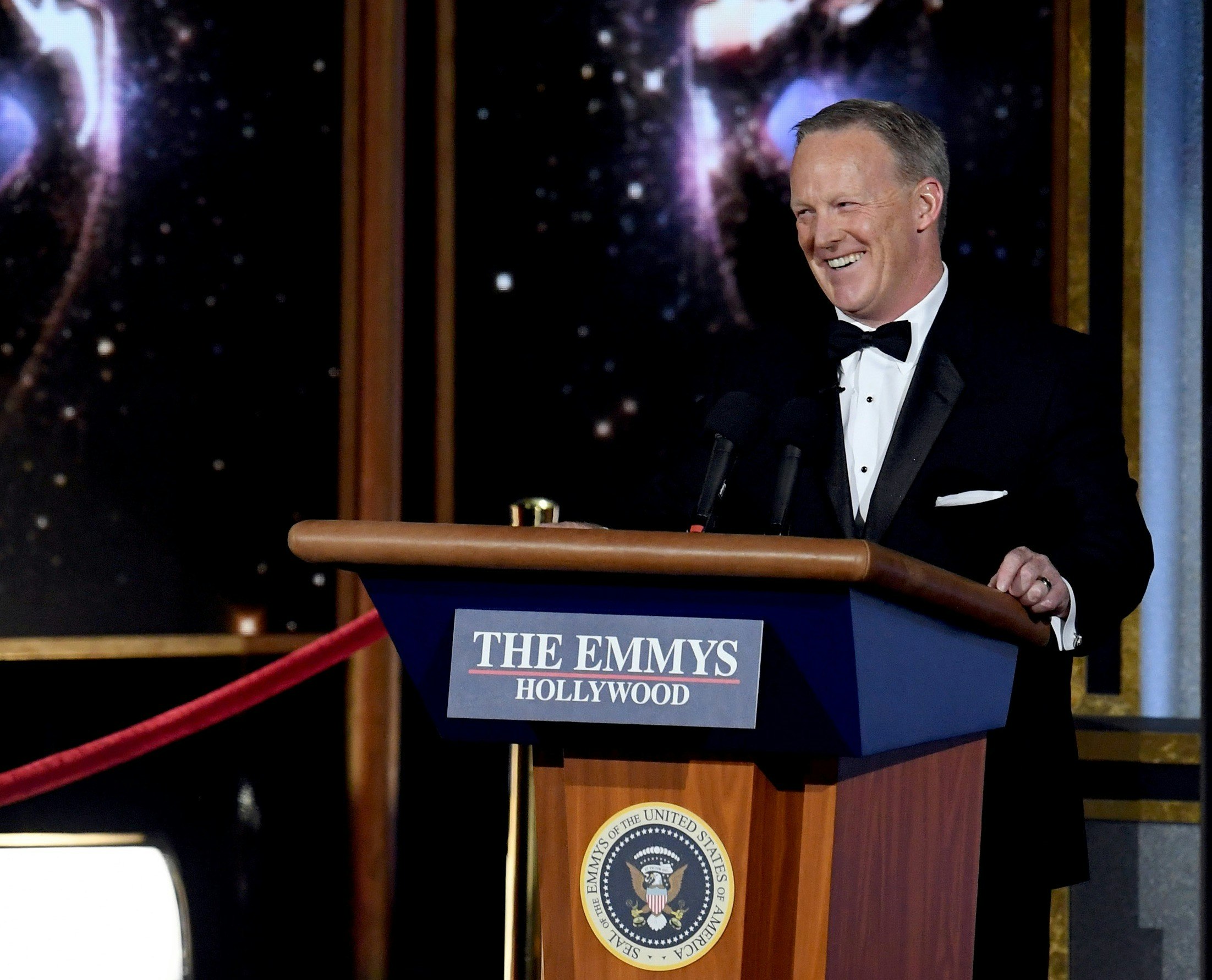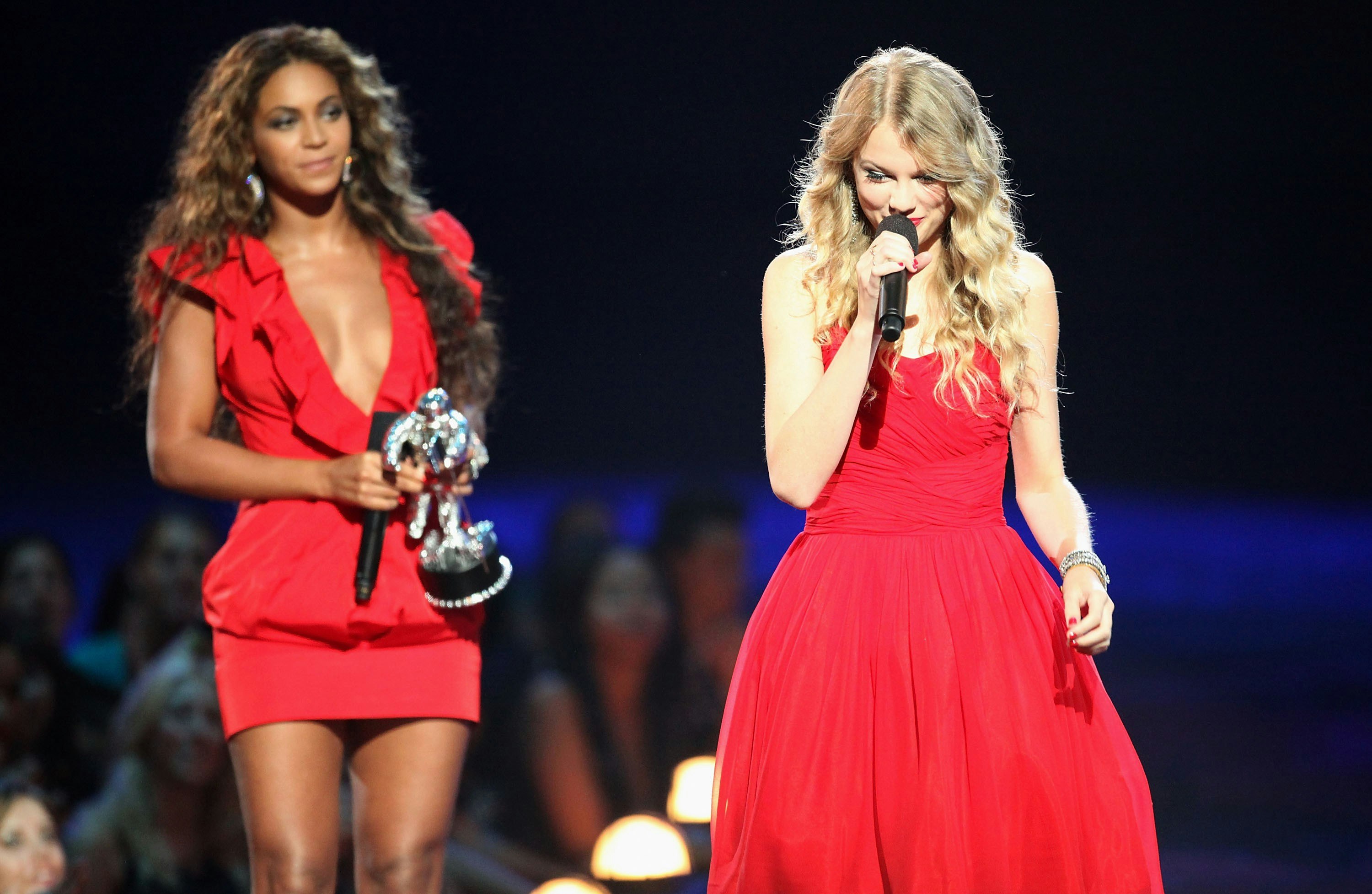IT HAPPENED
is a series reflecting on our memories of 2017, one month at a time, as we head into the new year.
The key to experiencing the events of 2017 was to maintain an attitude of blithe distance. Yes, a reality TV host became president and various other indicators suggested we might be collapsing into dystopia, but probably everything is fine. The things that happened this year were like the facehugger alien in Alien: not a problem as long as you didn’t look too closely. If you did, you would experience a moment of terror and then lie down until something horrible came out of you later.
That is what happened to me when I saw Sean Spicer at the Emmys. Here’s how the ovipositor went in: During his opening monologue, host Stephen Colbert mentioned the importance of ratings, and lamented that he had no way of knowing how many people were watching the broadcast. “Is there anyone who could say how big the audience is?” he asked. “Sean, do you know?” Enter Spicer, pushing a podium. “This will be the largest audience to witness an Emmys — period — both in person and around the world,” he said. And the crowd went wild.
Prior to that moment, Spicer was known as the White House Press Secretary who told outlandish lies badly until he got fired. His line was a callback to his claim, right after he started the job, that the crowd at President Trump’s inauguration was the largest in history. That statement was patently false; Politifact rated it “pants on fire.” His claim that more than 700,000 people attended was not true. His claim that photos made the crowd look smaller because the park service had used ground coverings on the National Mall for the first time was also not true. Even within the world of these lies, Spicer contradicted himself. He said it was the biggest inaugural crowd ever but also said it was diminished from previous years by the use of metal detectors. Even if he had been telling the truth when he said that three-quarters of a million people attended, it wouldn’t have been the biggest inauguration ever; Obama drew 1.8 million in 2009. You didn’t need to know any of these numbers, though, to see that Spicer was lying. Photos of the 2009 and 2017 inaugurations made it laughably clear.
This contest between Spicer and our lying eyes epitomized his brief career as press secretary. He consistently made statements that contradicted the obvious, and he did it poorly. During briefings, he seemed to have difficulty reading aloud, stammering and mispronouncing popular words. He routinely lost his temper under questioning. Spicer’s ineptitude was so comprehensive that he became a story unto himself, thereby breaking the cardinal rule of his position. When he finally got fired, articles about how he was not, in fact, the shortest-serving press secretary briefly dominated the news cycle.
All this is to say that Spicer was bad both ethically and professionally. He took a morally questionable job and did it poorly. In a just society — or even in a contest of machiavellian cutthroats — such a performance would hurt his career. But that’s not what happened.
When Spicer pushed his podium on stage at the Emmys, the ovation was gigantic. The pop was so big he had to wait to deliver his line. That line — “…the largest audience to witness an Emmys — period — both in person and around the world” — was designed to recall the most blatant lie of his tenure. Instead of booing him, though, or remembering that Spicer was a stooge for a president Hollywood reviles, the crowd went nuts. It was funny because they recognized it, and recognition was enough. In that moment, Spicer was not the liar who tried to sell his soul and couldn‘t get the market price. He was a fun reference we could all enjoy.
The disconnect between watching this moment at home and seeing reaction shots of the howling audience was jarring. Hollywood is supposed to be liberal. At a moment when the right wing had won control of government, the entertainment industry was supposed to speak for the people whom politics had failed. For the most part, though, the Emmy crowd did not seem to care about Spicer’s politics. (The exception may have been Melissa McCarthy, who played Spicer on Saturday Night Live and looked nonplussed to see the object of her impression received as just another species of sight gag.) For everyone else, though, he was a get. The joke was that they convinced him to come on.
That was the aggregate of Hollywood attendees, though. Surely, the more political members of the entertainment industry would not participate in the normalization of this undeniably bad person. This brings us to the worst part. Smirking from the other side of the stage, Colbert connived in the whole thing — Colbert, who was supposed to be the chief satirist of our age. The character he played on The Colbert Report skewered exactly the kind of intellectually dishonest political hack Spicer is. In the past, Colbert had stood up for his own left-leaning values publicly, even bravely. His performance at the White House Correspondents Dinner in 2006 was thrilling for just this reason — invited to speak before President George W. Bush and an audience of media figures that included plenty of conservative luminaries, he lampooned the security state, Bush’s plummeting approval, and the right-wing commentariat that pretended none of it was happening.
In that moment, he did what satire is supposed to do. Satire is supposed to be art’s bulwark against political power. Scumbags might wield the authority of government to their own advantage; they might buy access and influence, but we know the truth. Liars should be shamed by the truth that satire tells. But Colbert didn’t shame Spicer; he celebrated him. It turned out the satirist and the lying White House press secretary were friends, or at least friendly enough to work together.
When he trotted him out for laughs, Colbert forgave everything Spicer did and invited the rest of us to do likewise. We were supposed to see Spicer as a good sport and realize that, in the end, we’re all on the same team: knowing people who get the joke. Really, though, Colbert and Spicer are on the same team. That tax cut is a shame, but it will save Colbert millions of dollars. He wishes it could have gone the other way, but the important thing is that we’re all having a good time.
I did not have a good time watching this routine. It was the moment 2017 convinced me that we��re really doing this. We’re not just in a funny news cycle or some aberration we’re going to snap out of. This is corrupt government exploiting a decadent culture, and there are no systems in place to make it better. Liars and incompetents will be rewarded, not even because they’re clever and opportunistic but just because they’re famous. That’s the hallmark of a broken society: people in power cannot help but succeed, by virtue of their positions.
Get ready to watch more of this — more dummies elevated beyond their merit, more former truth-tellers deciding that lying is just this funny thing we all do at our jobs. Get ready for more disconnect between how people on TV react and what you feel in your heart. Get used to wishing the sensation that something is wrong would go away, until it does, and your chest bursts open and you become part of it yourself.
